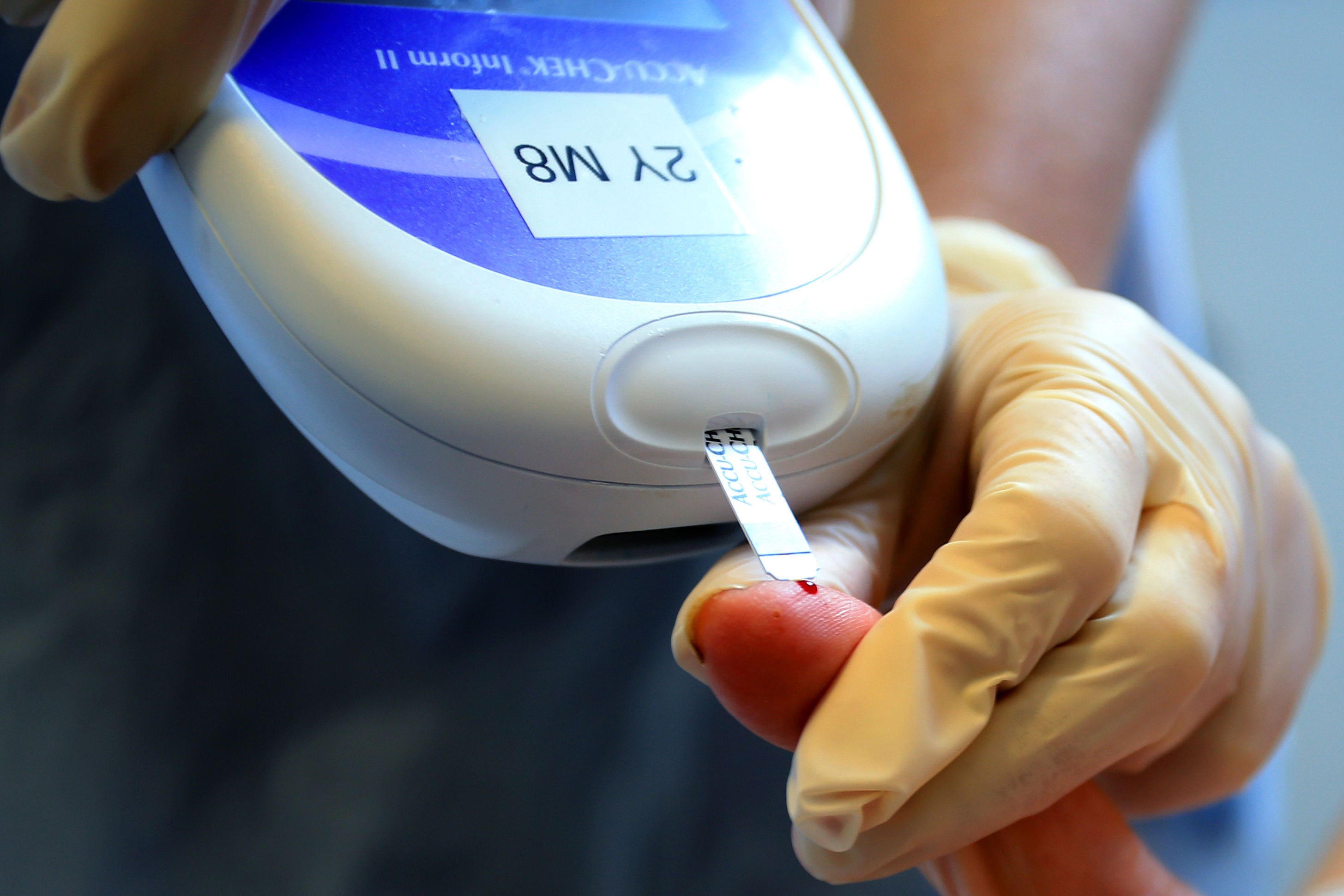New test could help identify risk of developing type 2 diabetes earlier
Scientists from the University of Edinburgh made the discovery.

Your support helps us to tell the story
From reproductive rights to climate change to Big Tech, The Independent is on the ground when the story is developing. Whether it's investigating the financials of Elon Musk's pro-Trump PAC or producing our latest documentary, 'The A Word', which shines a light on the American women fighting for reproductive rights, we know how important it is to parse out the facts from the messaging.
At such a critical moment in US history, we need reporters on the ground. Your donation allows us to keep sending journalists to speak to both sides of the story.
The Independent is trusted by Americans across the entire political spectrum. And unlike many other quality news outlets, we choose not to lock Americans out of our reporting and analysis with paywalls. We believe quality journalism should be available to everyone, paid for by those who can afford it.
Your support makes all the difference.A new test analysing changes to DNA in the blood can improve the ability to predict a person’s risk of developing type 2 diabetes within a decade, research has found.
Scientists from the University of Edinburgh looked at the influence of DNA changes – known as DNA methylation, which is when a small molecule called a methyl group is added to DNA.
Alongside this, other risk factors such as age, sex, BMI and family history were examined in about 15,000 volunteers to predict the likelihood of developing the condition years in advance of any symptoms developing.
Delaying onset is important as diabetes is a risk factor for other common diseases, including dementias
The findings could lead to preventative measures being put in place earlier, reducing the economic and health burden caused by the disease.
Researchers found that the inclusion of DNA methylation data alongside the other commonly used risk factors provided a more accurate prediction.
The scientists used their results to estimate the predictive performance using a hypothetical screening scenario of 10,000 people, where one in three individuals develop type 2 diabetes over a 10-year period.
The model that used DNA methylation correctly classed an extra 449 individuals compared with traditional risk factors alone.
More than 4.9 million people live with diabetes in the UK and 90% of those have type 2.
It is a serious condition where the insulin a pancreas makes cannot work properly, or a pancreas cannot make enough insulin.
This can lead to high blood sugar levels and, in turn, a range of health issues such as heart diseases and stroke, nerve damage and foot problems.
Data from 14,613 volunteers came from the Generation Scotland study group, designed to help scientists investigate the causes of disease, understand the country’s healthcare priorities, and inform future medical treatments and health policies.
The team repeated the analyses in 1,451 individuals from a study based in Germany to ensure their findings could be replicated in people from different backgrounds.
Yipeng Cheng, a PhD student from the University of Edinburgh’s centre for genomic and experimental medicine, said: “It is promising that our findings were observed in the Scottish and German studies with both showing an improvement in prediction above and beyond commonly used risk factors.
“Delaying onset is important as diabetes is a risk factor for other common diseases, including dementias.”
Professor Riccardo Marioni, from the University of Edinburgh’s centre for genomic and experimental medicine, said similar approaches “could be taken for common diseases” from a a blood or saliva sample.
He added: “We are incredibly grateful for our study volunteers who make this research possible – the more people that join our study, the more precisely we can identify signals that will help delay or reduce the onset of diseases as we age.”
Researchers from the University of Edinburgh were supported by experts at the University of Helsinki, the German Research Centre for Environmental Health and the German Centre for Diabetes Research.
The study is published in the journal Nature Aging.